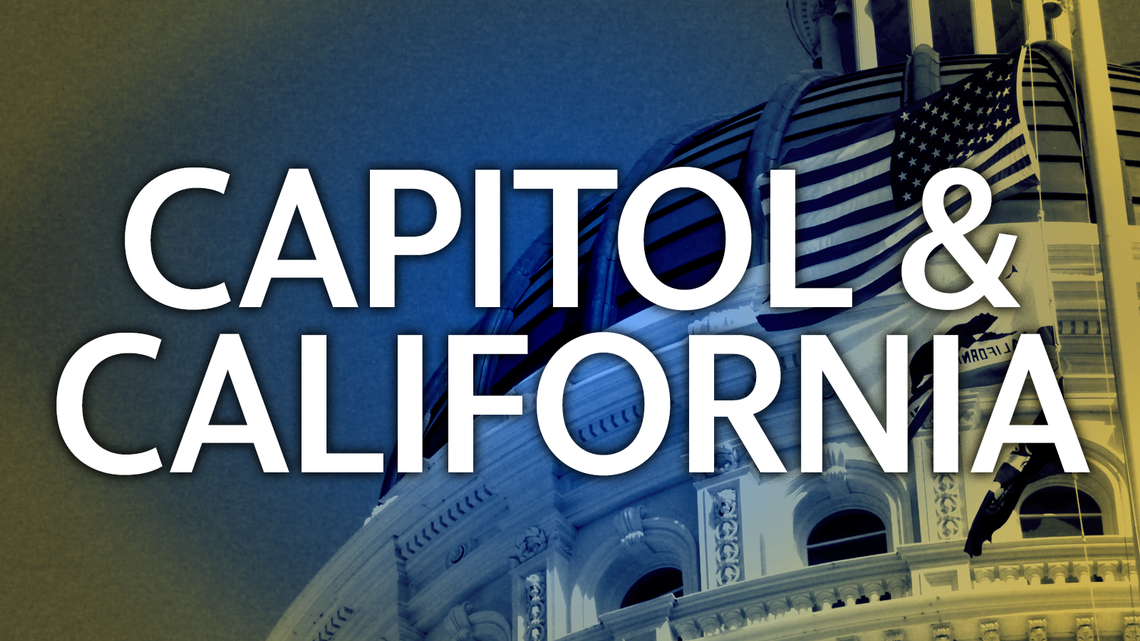Your car is recording your every move. A California agency wants to investigate.

Good morning and welcome to the A.M. Alert!
CALIFORNIA PRIVACY AGENCY TO INVESTIGATE VEHICLE DATA MINING
Modern cars do more than get you from Point A to Point B. With sophisticated, internet-enabled onboard computers, they provide vehicle manufacturers with a truckload (pun intended) of data on where you’re driving, what you’re buying, demographic data and more.
So what are they doing with all this information?
That’s what the newly created California Privacy Protection Agency would like to know, and so it has launched a review of the auto industry’s data privacy practices.
“Modern vehicles are effectively connected computers on wheels. They’re able to collect a wealth of information via built-in apps, sensors, and cameras, which can monitor people both inside and near the vehicle,” said CPPA Executive Director Ashkan Soltani in a statement.
With more than 35 million vehicles on the road in the Golden State, that is a lot of data for these car-makers to scoop up.
The announcement was hailed by advocacy group Consumer Watchdog’s Justin Kloczko, who said in a statement, “These companies know more about us than we know about ourselves, and they’re the ones in control of our personal information, not us.”
The group noted that commercial surveillance of automotive data is a $400 billion industry. But even more concerning, they say, is that the data, which many people are unaware is even being collected, can also be shared with the law enforcement. The Los Angeles Police Department and the U.S. Department of Homeland Security are just two of agencies that have been supplied with people’s text messages, their location and even which vehicle door they opened and when.
NEWSOM SIGNS FENTANYL-RELATED UPDATE TO GOOD SAMARITAN LAW
Via Grace Scullion...
People in California who turn in drugs found to be laced with substances like fentanyl will not be held liable for possessing drugs or drug paraphernalia under a new law signed by Gov. Gavin Newsom last week.
The bill introduced by Sen. Thomas Umberg, D-Santa Ana, expands California’s Good Samaritan Law, which gives legal protection to civilians who call 911 to help themselves or others in emergencies like drug overdoses. The objective is to encourage people to report laced drugs before an overdose occurs.
Fentanyl has been found in other drugs, like cocaine or heroin, or disguised as prescription medication like oxycodone. Testing strips reveal if drugs contain fentanyl in five minutes. The California Department of Health distributes them through syringe and needle exchange programs throughout the state.
Because fentanyl is 50 times stronger than heroin and 100 times more potent than morphine, according to the Centers for Disease Control and Prevention, a single pill can kill people without high drug tolerances. Fentanyl now accounts for the most opioid-related deaths. In 2021, more Californians died from the drug than in car accidents, according to reporting by CalMatters.
The expansion of the Good Samaritan Law is the latest attempt by California lawmakers to confront an increasingly deadly opioid crisis. Last week, Assembly Public Safety Committee Chair Reggie Jones-Sawyer, D-Los Angeles, requested $5 billion in bond money to combat overdose deaths. Republicans have pushed for harsher penalties for dealers.
The law will take effect on Jan. 1, 2024.
QUOTE OF THE DAY
“I was in shock. The same people from the state were the people who put me in jail for the cannabis plant. And now I got a gold medal.”
- Cannabis farmer Phil Crews, in an interview with The Sacramento Bee.
Best of The Bee:
For the first time, California’s leading air regulator acknowledged major roadblocks to meeting its ambitious carbon emissions target for 2030, a goal the agency set just months ago in a sweeping plan to tackle climate change, via Ari Plachta.
A steady decline in cannabis tax revenues over the past two years, even after state lawmakers lifted the cultivation tax in 2022, reflects a flagging industry for licensed cultivators. Only 39% of California cities and counties allow sale of retail cannabis within their jurisdiction, limiting the number of available licensed retailers to buy from cultivators in an over saturated market, via Hannah Shields.
Suddenly, California’s 2024 Republican presidential primary looks like it’s positioned to give former President Donald Trump a huge boost. The state’s GOP executive committee changed the rules over the weekend so that any candidate getting a simple majority — 50% plus one — wins all of the state’s 169 delegates. If no one gets a majority, delegates would be awarded according to candidates’ vote percentages. Under the old rules, candidates would be able to pick up delegates if they won congressional districts. It would have enabled Trump’s rivals to pick off delegates in less Trump-friendly areas, giving them decent shot at picking up blocs of delegates, via David Lightman.

